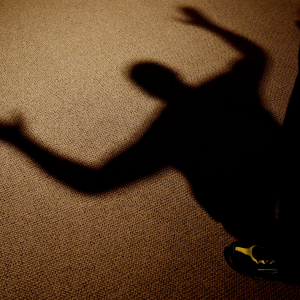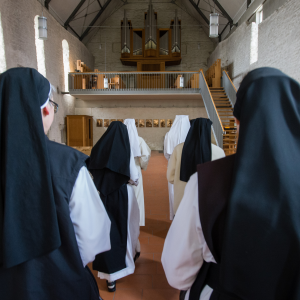Pope Francis has announced a shake up of female religious life by calling on all enclosed communities to review their mission, amend their rules and then submit them to the Vatican for approval.
In an Apostolic Constitution released on Friday, the Pope says he wants cloistered nuns to reflect on 12 aspects of religious life including formation, prayer and the impact of digital communications. Calling for female contemplatives to change their constitutions is likely to be a huge undertaking given there are hundreds of thousands of contemplative nuns across the world but the Pope says he is doing so in order to take into account the “changed social and cultural situation”.
In the constitution “Vultum Dei Quaerare” (Seek the Face of God) the Pope calls on communities to have a stronger prayer life lamenting that “many simply feel no need to pray” while stressing the importance of formation as not simply taking place at the beginning of a nun’s contemplative life but something which is “never ending”.
Francis urges communities against thinking in terms of “numbers and efficiency” warning that recruiting candidates from across the world to ensure the survival of a monastery should be “absolutely avoided”.
The text also emphasises the importance of the work undertaken by communities stressing that while some “may enjoy some income, this does not mean that the members are exempted from the obligation of labour”. And he adds that while digital media can be helpful nuns must be careful not to “waste time” on smartphones and computers or use it as a means of escaping duties.
There are roughly 750,000 female religious world-wide and these are broadly grouped into two categories: contemplatives - those living in cloistered monasteries - and those in “apostolic” orders and working out in the world. Under Benedict XVI the Vatican investigated apostolic religious sisters in the United States for a perceived lack of orthodoxy but this was ended by Francis. Last month, however, it emerged that the Vatican had contacted 15 American orders of Catholic sisters to clarify points on their following of Church teaching and way of living religious life.
In the constitution Francis is fulsome in his praise for female contemplative women stressing that the text is mean to be an “effective contribution to the renewal of your life and your mission in the Church and the world”.
He writes: “Dear contemplative sisters, without you what would the Church be like, or those living on the fringes of humanity and ministering in the outposts of evangelisation? The Church greatly esteems your life of complete self-giving. The Church counts on your prayers and on your self-sacrifice to bring today’s men and women to the good news of the Gospel. The Church needs you!”
But he explains that “the foundational values of contemplative life need to be maintained” and they “must challenge the contemporary mindset.”
The constitution concludes with 14 new legal norms including that that the Vatican department which oversees religious will issue its own regulations to communities with amending their constitutions. This document is not the first centralising move by the Jesuit Pope on the matter of religious: earlier this year he ruled that bishops must consult with the Vatican before establishing a diocesan religious order.




 Loading ...
Loading ...